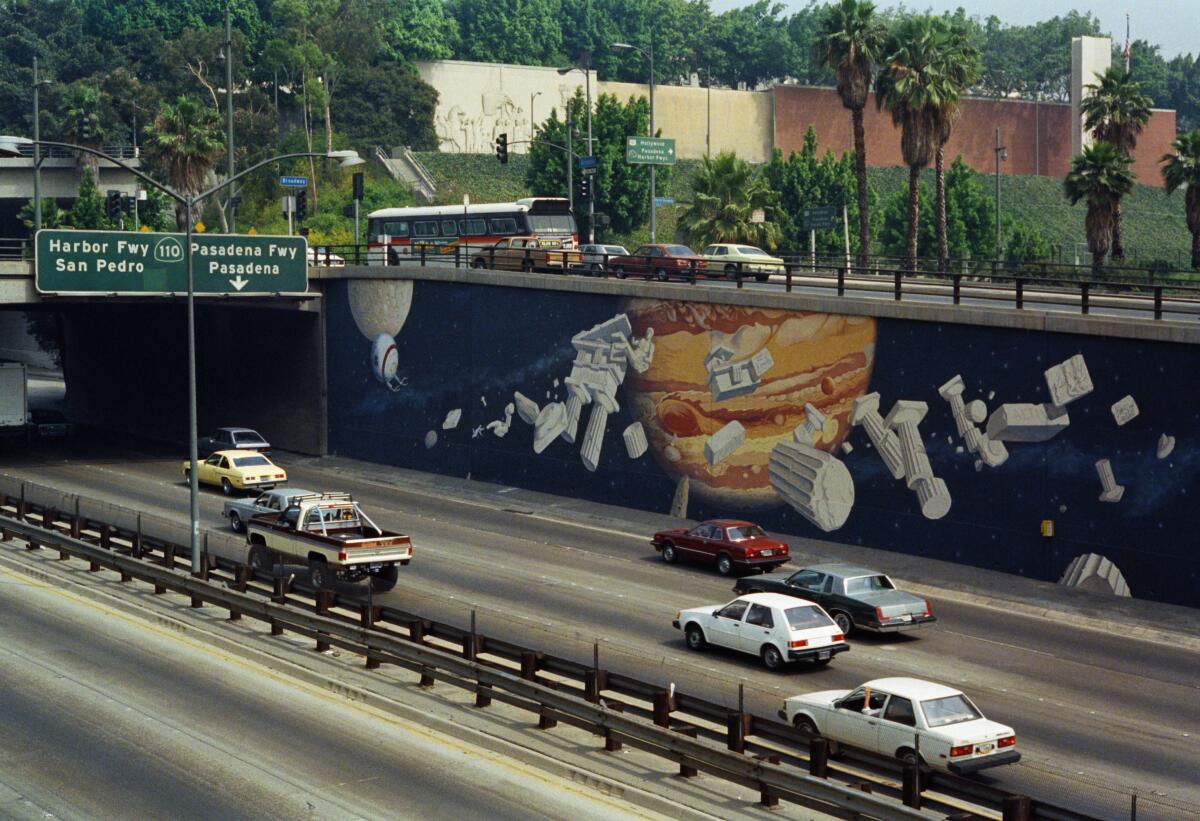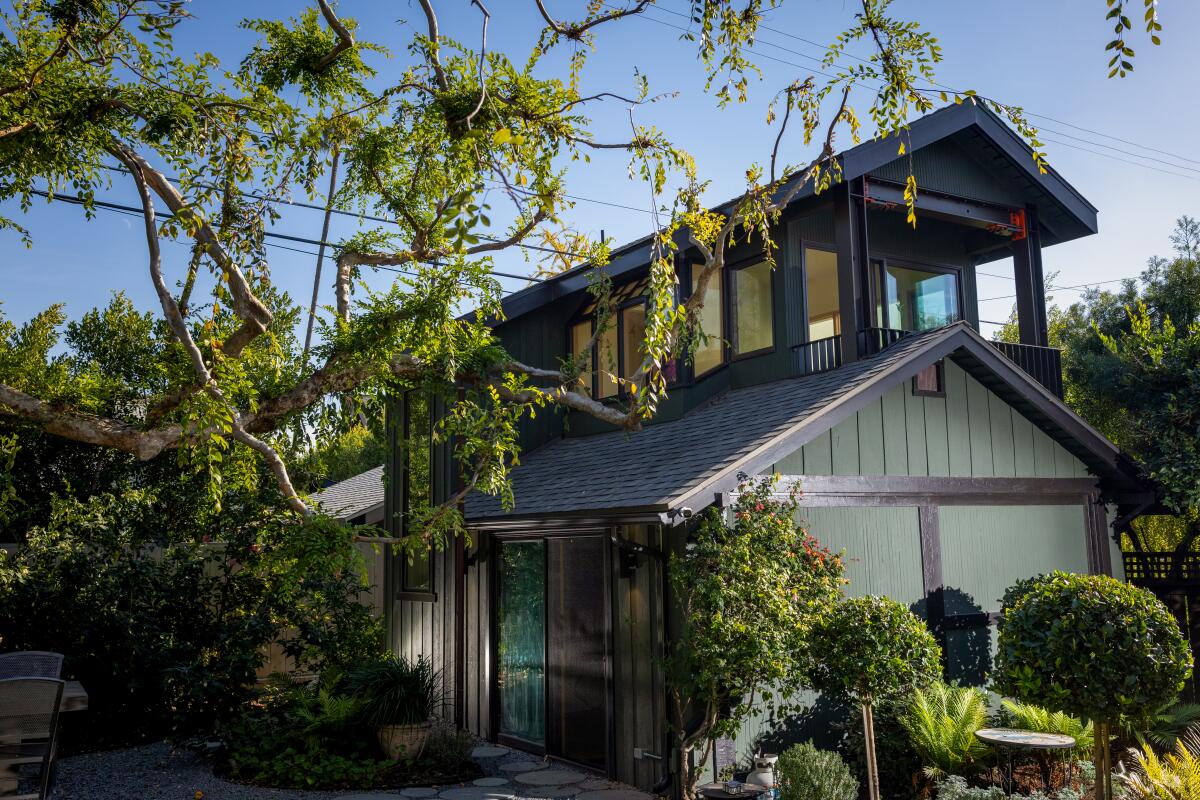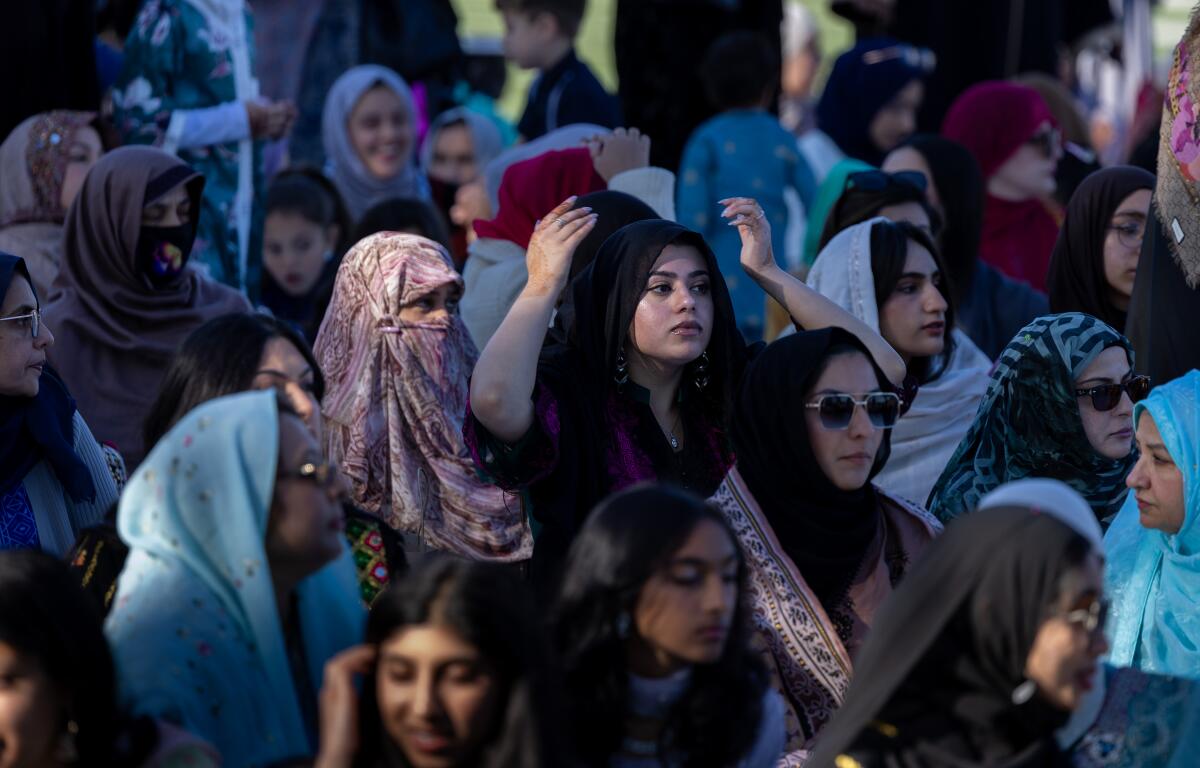L.A. buses helped eliminate 1984 Olympic traffic. Can they repeat for 2028?

- Share via
Good morning. It’s Friday, April 12. Here’s what you need to know to start your day.
- What will the city do about traffic once the Olympics arrive? L.A. has handled it before
- O.J. Simpson, whose murder trial riveted and divided the world, has died
- Eight of the best classic tuna melt sandwiches in L.A. and Orange County
- And here’s today’s e-newspaper
You're reading the Essential California newsletter
Our reporters guide you through our biggest news, features and recommendations every morning
You may occasionally receive promotional content from the Los Angeles Times.
Olympic-sized traffic? L.A. relied on buses in 1984
Four summers from now, Los Angeles will host the 2028 Olympic Games, bringing widespread media attention and a swell of international tourism. Organizers and local leaders are also bracing for another influx: apocalyptic traffic.
Those are valid concerns in car-centric L.A. There are over 1.5 million more people living in L.A. County now than there were in 1984. The most recent estimates from the U.S. Census Bureau put L.A. County’s population at 9.6 million. At the end of 1984, the county had roughly 7.9 million people, according to state officials.
That’s before considering the major uptick in international tourists bound for L.A. to catch the Games and explore the region. More people going more places generally means more cars — and more traffic.
I wasn’t around (or alive) the last time L.A. hosted the Olympic Games. But in the lead-up to the summer of 1984, there were similar widespread traffic fears. Some lawmakers even proposed moving a holiday to give workers a day off and instituting a temporary four-day workweek as a way to reduce traffic during the games. Four years before those Games, a state Department of Transportation official warned local leaders that the region would be crippled by congestion “unless extraordinary measures are taken.”
Then the 1984 Olympics arrived. How bad was traffic?
What traffic?
“Los Angeles freeways flowed more smoothly during the Olympics than at any time since the last gas crisis,” former Times reporter Mark A. Stein reported in September 1984. “It was a kind of automotive nirvana — higher traffic volumes yet less congestion — that was hard to believe at the time and harder still to explain when it vanished.”
There were a few key actions that contributed to that success. Some businesses adopted flexible schedules, staggering workers’ start times, which meant they weren’t all driving at once. Improved and cohesive real-time traffic data and a united approach to managing congestion also helped.
And there were the buses.
That era’s Southern California Rapid Transit District (predecessor of the L.A. County Metropolitan Transportation Authority) pulled out all the stops. It boosted its bus fleet by borrowing 550 buses from local agencies, transported passengers in dedicated lanes protected from car traffic and encouraged residents and those attending Olympic events to board the bus rather than drive themselves.
And it worked. Congestion on many local roads fell and the investment in fast, frequent bus service was heralded as a model for how to defeat soul-sucking traffic.
And traffic was never a problem again. *sigh*
The region has changed a lot in the last 30 years. For one thing, we now have six subway and light rail lines spanning more than 100 miles, as opposed to zero lines and zero miles in 1984.
As local leaders’ ambitions to host the Olympics took shape, so did plans to dramatically expand the region’s rail network in time for the Games. L.A.’s hosting gig “creates a strong added incentive to quickly improve mobility across the region,” L.A. County Metropolitan Transportation Authority officials stated in their Vision 2028 Strategic Plan.
But as Times transportation reporter Rachel Uranga explained recently, their expectations wrote checks that their coffers couldn’t cash.
“The price tag and timeline were out of reach for many of the projects,” Rachel wrote last week. “Metro hasn’t been able to line up even half of the $40 billion needed to pay for them.”
So now, with their grand plans fizzled, officials are turning once more to the humble bus.
Their next challenge, Rachel reported: “trying to figure out how to pay more than $1 billion to run buses that will probably disappear after the Games.”
L.A. Metro has estimated it could cost at least $700 million to hire, train and pay the legion of temporary drivers and mechanics it would take to keep buses running during the event. The agency also may have to lease more buses, which could push that price tag to $1 billion.
Officials from LA28, the private organizing committee behind the upcoming Games, say they won’t foot that entire bill. So who will?
Organizers hope the federal government will help. But Metro officials are expressing more worry, saying existing federal grants won’t come close to the amount needed to pull off another L.A. traffic miracle.
Despite the crumbled or scaled back plans, there’s still some hope for L.A. public transit to have its 2028 moment.
“Officials have dubbed this a ‘car-free’ Games largely because of this lack of parking, which they believe will force visitors to use public transit,” Rachel wrote. “Transit officials hope it will be a bright spot for the Metro system, which has struggled in the wake of the COVID-19 pandemic.”
You can read more of Rachel’s reporting here.
Today’s top stories

O.J. Simpson dies
- O.J. Simpson, whose murder trial riveted and divided the world, dies at 76.
- The Goldman family on O.J. Simpson’s death: He ‘died without penance.’
- O.J. Simpson, the white Bronco and a freeway chase that changed L.A. forever.
- Commentary: From the Brentwood townhouse to the downtown courthouse, the O.J. Simpson saga was part of my life.
- How O.J. Simpson’s murder trial changed the TV news business.
- The O.J. trial defined an era when apocalyptic L.A. was the center of the universe.
- The story of O.J. Simpson’s life, told in Los Angeles Times headlines.
Shohei Ohtani interpreter scandal
- Shohei Ohtani’s ex-interpreter charged with stealing $16 million from Dodgers star.
- What’s next for Shohei Ohtani and MLB after charges against Ippei Mizuhara?
- Is Shohei Ohtani still in trouble? Authorities say Dodgers star is ‘considered a victim.’
- Shohei Ohtani is vindicated, and his legend continues as a baseball star, not a gambler.
Disneyland
- Disneyland touts a lifetime ban for disability cheats. That’s not what’s worrying some park-goers.
- Plan accordingly: These four Disneyland attractions will be closed in coming weeks.
- The unmissable addition to Disneyland’s Star Tours ride? Space whales.
More big stories
- Explosive levels of methane have been detected near a Berkeley landfill-turned-park.
- SpaceX is launching more rockets from a military base. Can the Coastal Commission impose a limit?
- Paul Flores, Kristin Smart’s convicted murderer, attacked and stabbed in prison again.
- Aerosmith farewell tour is back on with new L.A. date, months after Steven Tyler injury.
- Jordanians protest nightly against peace deal with Israel amid anger over Gaza war.
- Dianne Feinstein made history. Now she could get honored with a post office?
- Why would anyone steal $300,000 in Lego sets? Believe it or not, there’s a booming black market.
- Copper thieves strike again, mutilating a 100-year-old monument in MacArthur Park.
- ‘It’s environmental racism.’ Monterey County ag officials sued over farm fumigants near Latino schools.
- Newsom called it a ‘gimmick.’ Now he’s using the trick to lower California’s massive deficit.
- Construction of wildlife crossing in Agoura Hills to partially close 101 Freeway.
- Eaze cannabis delivery drivers threaten strike ahead of annual pot day.
- ‘I cant focus on anything but rage.’ Pro-Palestinian protests roil elite Pomona College.
Get unlimited access to the Los Angeles Times. Subscribe here.
Commentary and opinions
- Michael Hiltzik: California’s transgender sanctuary law survives a challenge as judge ridicules plaintiff’s claims.
- Editorial: L.A. City Hall has a corruption problem. Why are leaders stalling on ethics reform?
- Mark Z. Barabak: Presidential foundation was too scared to honor Liz Cheney, so he quit in disgust.
Today’s great reads

This gorgeous Craftsman-inspired ADU in Hollywood was once a rickety garage. A two-story Craftsman ADU in Hollywood — formerly a rickety garage — is designed to provide office space, a gym and housing while preserving a lush garden.
Other great reads
- Another ‘Melrose Place’ reboot is in the works, with a trio of original stars returning.
- Want to travel with style? These 7 items got you covered.
- ‘Every day, we’re dying.’ In Ukraine, defeat was unthinkable. Has that changed?
- California saw a surge in abortions after Dobbs. Providers are bracing for more.
- Airbnb rentals could be harder to come by in Hawaii. Here’s why and when that might happen.
How can we make this newsletter more useful? Send comments to essentialcalifornia@latimes.com.
For your downtime

Going out
- 🥪 Eight of the best classic tuna melt sandwiches in L.A. and Orange County.
- 🕹️This L.A. escape room explores corporate greed — and shows how corruptible you really are.
Staying in
- 📺 In the enjoyable ‘Franklin’ on Apple TV+, Michael Douglas plays a flirtatious founding father.
- 🧑🍳 How to make Michael Twitty’s matzoh ball gumbo, a soup of Black and Jewish cuisines.
- ✏️ Get our free daily crossword puzzle, sudoku, word search and arcade games.
And finally ... a great photo
Show us your favorite place in California! We’re running low on submissions. Send us photos that scream California and we may feature them in an edition of Essential California.

Today’s great photo is from Times photographer Brian van der Brug at the Islamic Society of West Valley’s celebration of Eid al-Fitr, where Muslim communities ended the holy month of Ramadan.
Have a great day, from the Essential California team
Ryan Fonseca, reporter
Defne Karabatur, fellow
Kevinisha Walker, multiplatform editor and Saturday reporter
Christian Orozco, assistant editor
Stephanie Chavez, deputy metro editor
Check our top stories, topics and the latest articles on latimes.com.
Sign up for Essential California
The most important California stories and recommendations in your inbox every morning.
You may occasionally receive promotional content from the Los Angeles Times.







